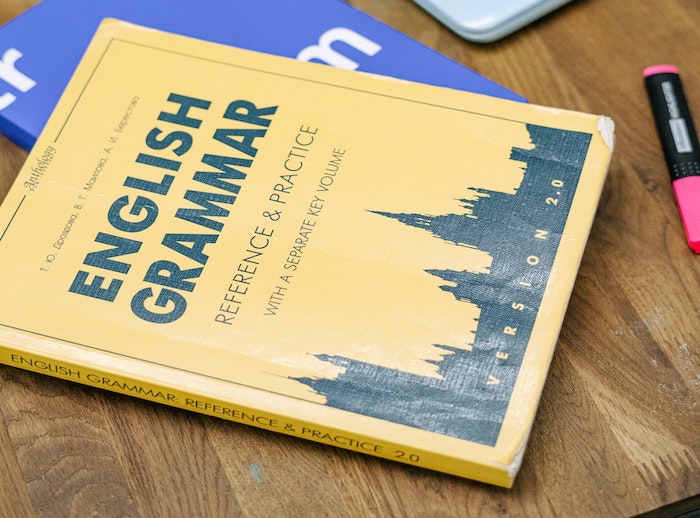How to Learn & Improve Your English Language Proficiency Fast

Proficiency in the English language has become a priority for people across the world and in different sectors. Efficacy in the language brings many benefits considering English is the most spoken language in the world. It is a power language.
Proficiency in English increases your odds of success in numerous ways by widening your business and employment opportunities and enabling effective communication with people across the globe.
However, fluency in English can be a challenge, especially for non-native speakers. Many people (native speakers included) struggle with proper use of English, particularly the written form of it.
Fortunately, there are things you can do to learn (and improve) your English proficiency fast. Keep in mind that without proper English-speaking and writing skills, it is almost impossible to grow your opportunities in the English-speaking world.
So, how do you become proficient in the language?
Best Tips for Becoming Proficient in English

Here are some of the best tips you can use to learn and become proficient in the English language:
1. Hire a Professional English Tutor
Getting better at English means you may need to be under the supervision of a qualified professional tutor. Hiring a professional tutor offers you one-to-one, interactive English tutoring to help you get better at the language much faster. This is not proof of your incompetence, but rather it shows that you are eager to get better and better in English every day.
A tutor will correct your contextual understanding of words and their meanings as well as any pronunciation errors you have in written English. The tutor will also explain grammar basics to you so you can think, speak, and write in English like a pro.
When hiring a tutor, you can choose a home tutor for one-on-one private English lessons or even an online tutor for convenient online learning to improve your English proficiency and boost your confidence. With the right tutelage and guidance, you can improve your English fast.
2. Think in English before Speaking in It
You might have heard the famous proverb ‘think before you speak.’ Well, implement this saying while you are training and practicing to become proficient in the English language.
Before speaking and writing anything in English, think about it in English first. Your brain will rectify any mistakes you might be about to make.
If you write or speak after thinking, the chances of making mistakes reduces.

3. Communicate with Friends and Family in English
The best way to get better at the English language is to speak it often. Practice makes perfect. The more you speak in English, the better you get.
Let your close friends and family know that you are trying to improve your English speaking and writing skills.
Also, tell them that they should communicate with you in English. The more you communicate in English, the better you get. The more you write in English, the better you get at it.
4. Watch English Movies and TV Series
Some of you may find movies and television series a waste of time, but it is a big source of getting better at English. You will learn new words, and understanding their contextual meaning easier.
Movies and television series have several genres and every story has something different to tell. With every story, you can learn several new words and several new uses of those words.
Understanding the meaning is not a problem when you know the story. Contextual meanings always works better. So, listen to English programs, too.
5. Read More English Books and Literature
Reading is among the top ways to improve English. Just like TV series and movies, reading also helps you to grow your vocabulary. You can also better understand the structure of sentences.
While writing, the majority of people make mistakes in punctuating of their sentences. When you read published books, however, you see and learn how to correctly place punctuation marks, where a pause is mandatory, and what is generally the right length of sentences and paragraphs.
Lengthy sentences and paragraphs are hard on the eyes. They break the readers’ or listeners’ ability to follow the crux of the writing. You can learn to identify such errors and avoid them in your own writing when you read widely.
6. Look Up and Learn New Words

Learning is not dependent on your age. Learning never ends and you should not be ashamed of admitting that you don’t know something. Admit it and learn to understand and get better.
Thus, improving your English language abilities means you will learn new words, concepts, and applications constantly.
Don’t hesitate to look up new words you encounter in the dictionary to find out more about the words. The more you learn, the better you get.
Find out meanings of every word that you are not familiar with. It will enhance your vocabulary and you can be sure you will get more proficient in your English writing and speaking.
7. Believe That You Can Improve Your Skills
A common misperception among many people is that if you are working on a skill, it means you are in the learning phase. This is not always true. You may be working on improving your skills.
Improving and learning are not one and the same thing. They have distinct meanings. So, even native English speakers can improve their language skills.
And as Confucius said: 'He who says he can and he who says he can't are both usually right.' Make sure you remember that and also let others know about it.
Believe you can learn and improve your English language skills and you will; believe you can’t and you won’t. it’s that plain and simple.
8. Write More to Get Better

Since childhood, many of us were asked to keep a diary where we write the events of our days and our experiences every day. A diary helps us to keep a record of everything we do and also to express our emotions and treasured experiences on paper.
But, did you know that keeping a diary can also be an effective way of improving your English language skills? Yep, keeping a diary may sound old-fashioned, but it is also a thoroughly modern and effective way to practice writing and improve your language skills.
Not everyone can be a writer or author with excellent English language skills. However, everyone can keep a daily diary and write every day, trying to follow the proper rules of grammar. That way you can write more and improve your English proficiency.
9. Use a Thesaurus
Be friends with a Thesaurus, which is a book that lists words in groups of synonyms and related concepts. Your friendship with a thesaurus will help you improve significantly. You will not only learn new words, but their contextual meanings and synonyms will become easier to learn as well.
A thesaurus is not just a collection of words that you have to memorize. It is more so a guide on the best way to use the words. Every synonym may not suitable in a sentence. With the help of a thesaurus, you can identify the right application and positioning of words.
10. Stay Confident About Your Skills
No matter what you do and how you do it, just make sure you are confident about what you are learning and the progress you are making.
Research shows that the most commonly asked question among English learners is: "Why is it easier to be perfect in English while thinking, but there are many mistakes while speaking?"
This question has a simple answer: lack of confidence.
Confidence is the key to becoming excellent in English—or anything else for that matter. Do not feel inferior while speaking the language. You must be confident while speaking and writing. You can become a pro in the English language if you are confident about it.
It all comes down to your confidence levels. The more confident you are, the more proficient you become and the faster that happens.
In Conclusion
Becoming proficient, even excellent, in the English language is not as tough as you might have thought. Follow the simple tips above and you will improve. If you follow the tips, you will get fluent in both written and spoken English.
Even for native-speakers and those who are good in the English language, there is always room for improvement. Never stop learning and never give up.
And as the saying goes, “Practice makes perfect.”




















